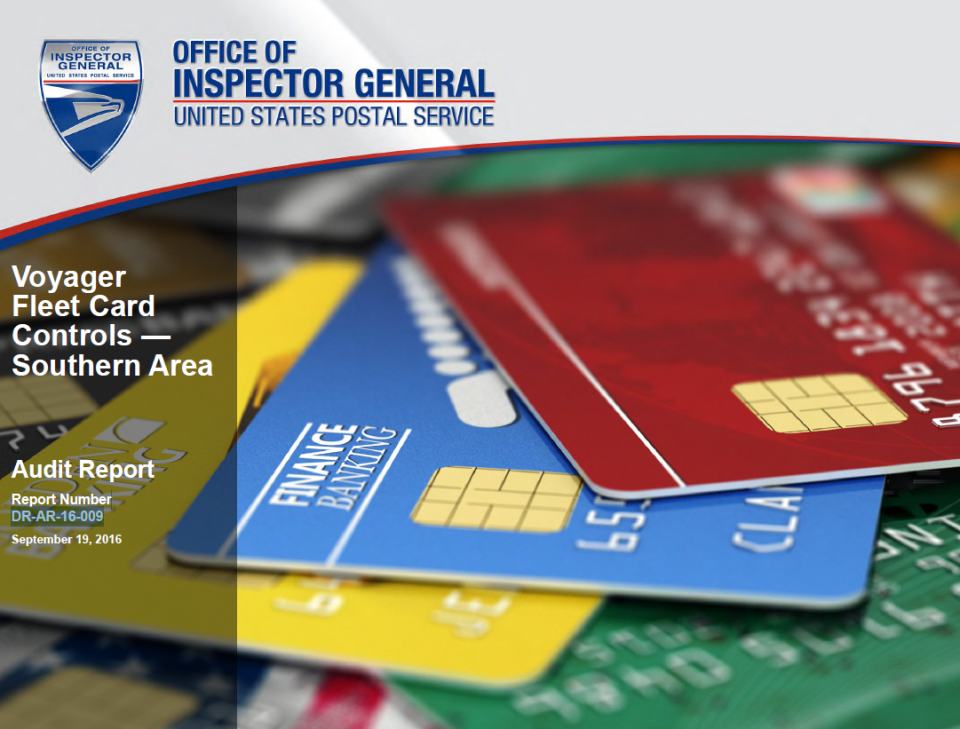Voyager Fleet Card Controls — Southern Area
Background
The U.S. Postal Service operates one of the largest vehicle fleets in the U.S., with over 214,000 vehicles, primarily used to deliver and collect mail. Every postal-owned vehicle is assigned a Voyager fleet card to pay for its commercially purchased fuel and oil and routine maintenance. Each vehicle operator receives a randomly selected Personal Identification Number (PIN) to authorize Voyager fleet card purchases. The PIN is a confidential number that is unique to each employee and electronically linked to each card purchase.
The eFleet application in the Fuel Asset Management System (FAMS) tracks fuel and maintenance purchases for vehicles used by Postal Service personnel through the Voyager fleet card.
At each facility with assigned vehicles, a site manager monitors Voyager fleet card purchases in the FAMS. Specific card controls such as frequency limits and daily cost limits were designed to limit improper card use and flag some high-risk transactions as exceptions. These high-risk transactions require review and written justification for the transaction during a monthly reconciliation process. Site managers should perform the monthly reconciliation to ensure accurate reporting of purchases and detect fraud. This can only be accomplished if the reconciliation is completed once a month.
In calendar year (CY) 2015, the Postal Service spent over $550 million in Voyager fleet card purchases. Southern Area Voyager fleet card purchases for CY 2015 totaled more than $106 million, with $12.6 million of these costs (11.9 percent) identified as exceptions. The Southern Area has over 38,000 vehicles.
Our objective was to assess the ef fectiveness of controls over Voyager fleet cards used in delivery operations in the Southern Area.
What the OIG Found
Controls over Voyager fleet cards in the Southern Area were not always effective. Site managers did not always properly perform Voyager fleet card reconciliations and 140 of 207 high-risk exception transactions (68 percent) we reviewed were not supported. In addition, 18 of 34 delivery units had no accountability or security controls for 320 Voyager fleet cards and site managers at the 34 selected delivery units did not properly manage employee PIN lists. Management also did not distribute Voyager fleet card policies and procedures or secure these credit cards. We made referrals to our Office of Investigations, as appropriate.
These conditions occurred because of inadequate management oversight of the reconciliation process and insufficient training of delivery unit employees.
Improving Voyager fleet card reconciliations, training, and oversight will reduce the potential for erroneous transactions and unauthorized card use. We estimate the Southern Area incurred over $8.5 million in questioned costs for unsupported Voyager fleet card transactions in CY 2015.
What the OIG Recommended
We recommended management direct district managers to assign site managers to reconcile high-risk exception transactions and provide training on the reconciliation process. We also recommended management distribute updated Voyager Fleet Card Standard Operating Procedures to all site managers, issue an area management directive to safeguard Voyager fleet cards and employee PIN lists, and provide training as appropriate.

